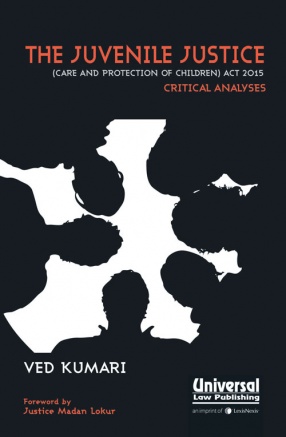The constitution of India envisages for Indian children a happy and healthy childhood, free of abuse and exploitation. However, the reality of daily life for vast numbers of children is completely disconnected from this vision. In the case of juveniles facing the law enforcement machinery, the situation is even more poignant. This book is a comprehensive and thought provoking examination of the working of the Juvenile Justice System in India as it exists today and how it has developed historically. According to the author, the problem of neglected and delinquent children can only be understood and dealt with in the context of the wider concept of child rights. The objectives of the Juvenile Justice (care and protection of children) Act, 2000, are to ensure the care and protection of children, to provide for their development and rehabilitation, and most significantly, to reorient the law regarding juveniles according to the standards and rules prescribed by the United Nations. Large numbers of children in India live in conditions of deprivation and in circumstances which can easily lead them to crime. The author shows how, despite the best of intentions, lack of coordination between various Juvenile Justice Agencies causes the whole system to be dysfunctional. Using the insights offered by this analysis, Ved Kumari strongly advocates the adoption of a systemic and holistic approach to juvenile justice, where each agency, from the police to the rehabilitation and training institutes, is kept aware of the objectives of the system. Further, she offers a critical analysis of the factors which have so far prevented the development of a viable and beneficial Juvenile Justice System. This book will be invaluable for child welfare agencies, policy-makers, lawyers, police officials, members of the judiciary, NGOs working with juveniles, and educationists.
The Juvenile Justice: Care and Protection of Children, Act 2015: Critical Analysis
This Book critically ...
$36.00
$40.00







There are no reviews yet.